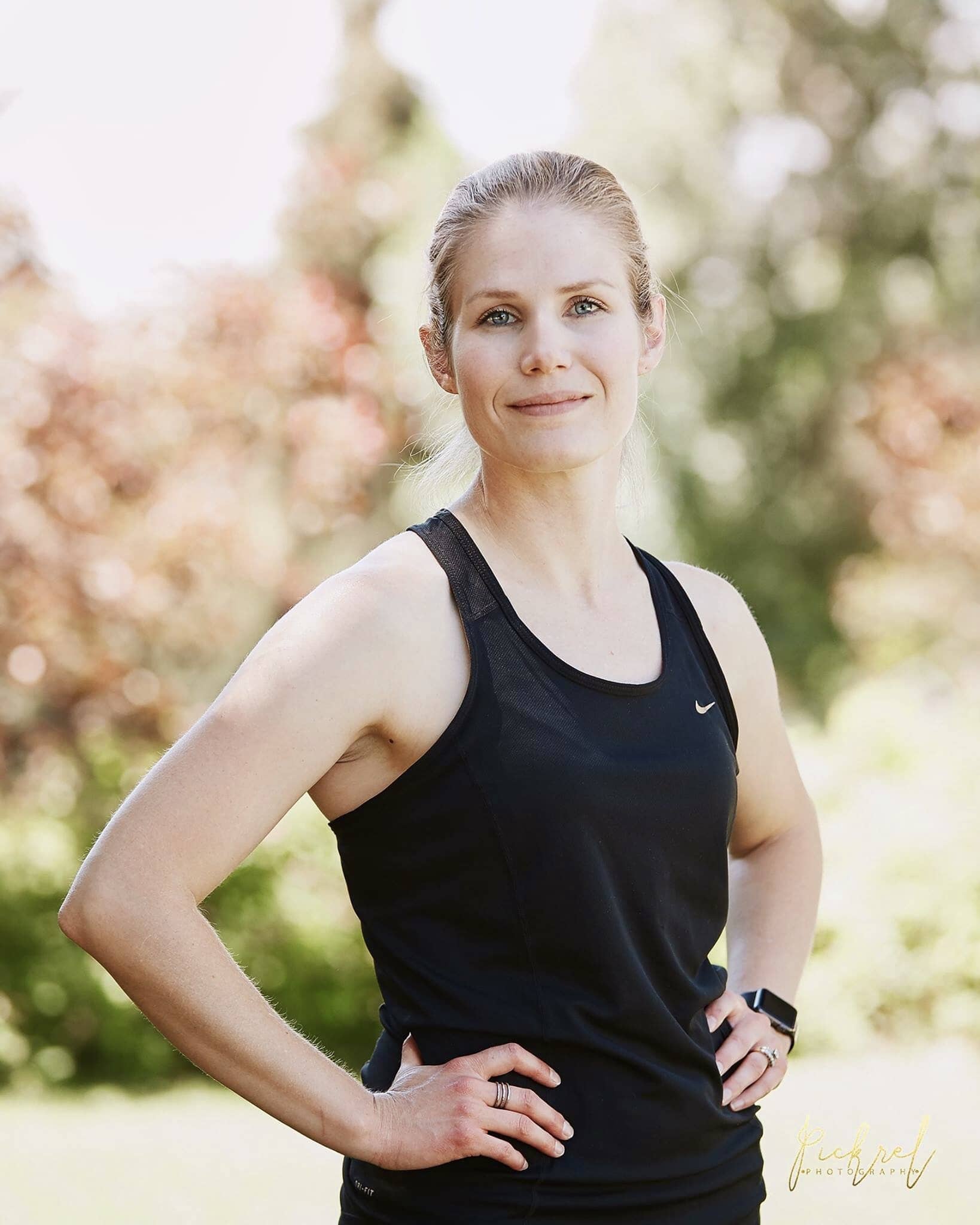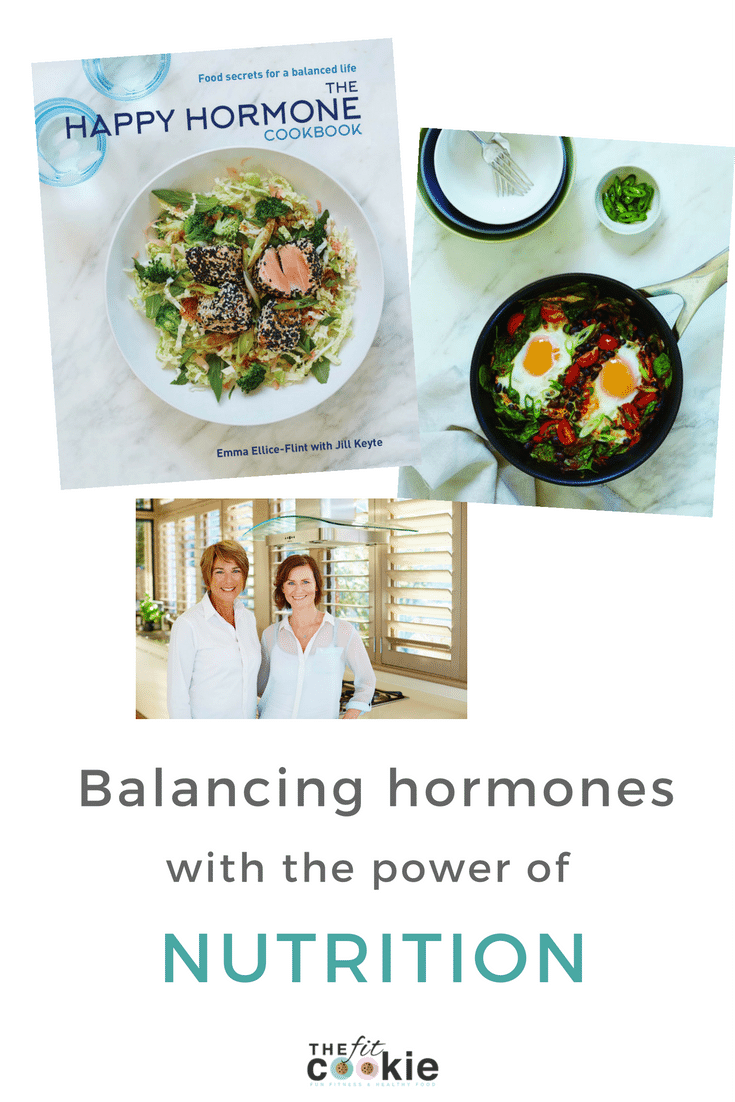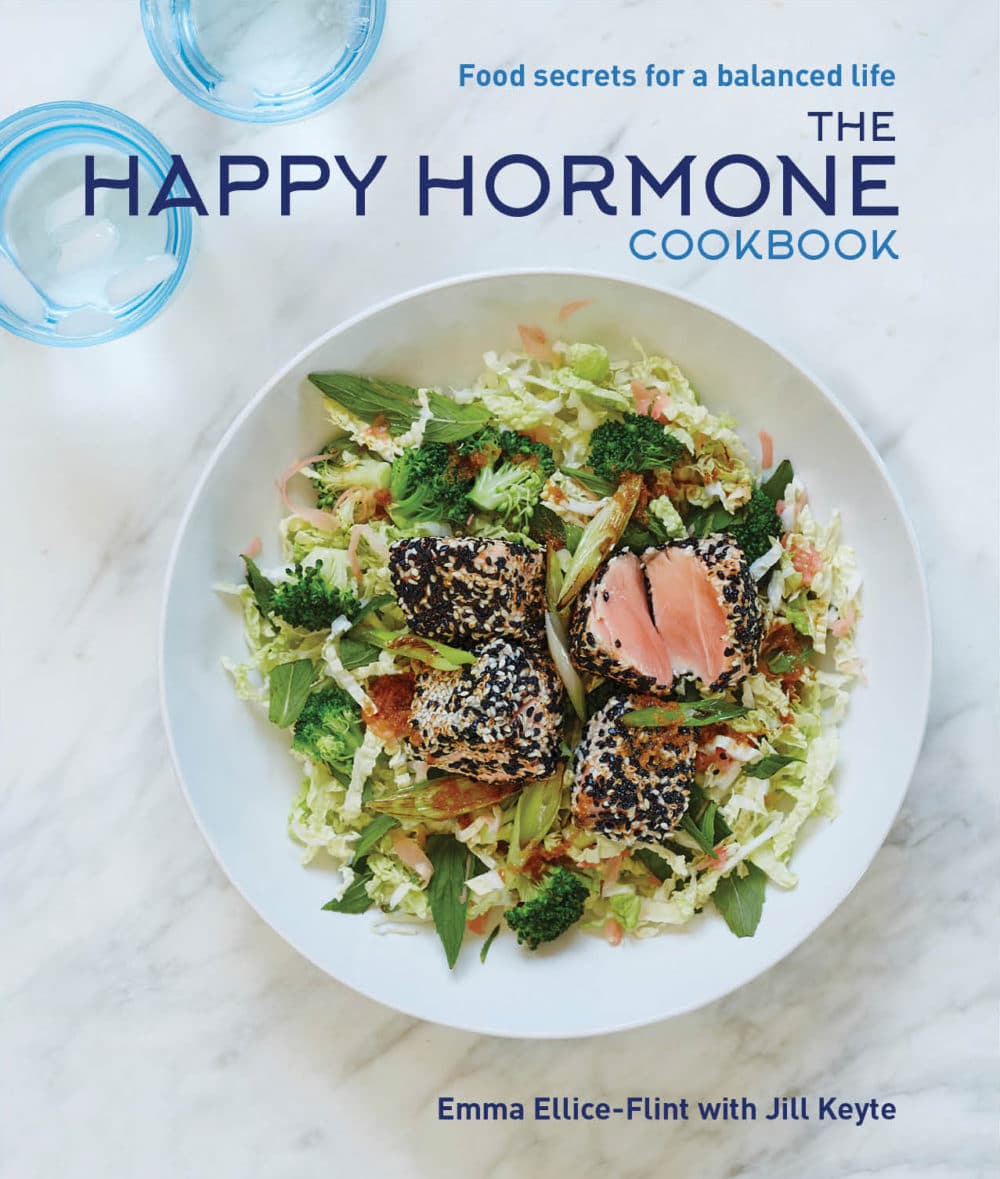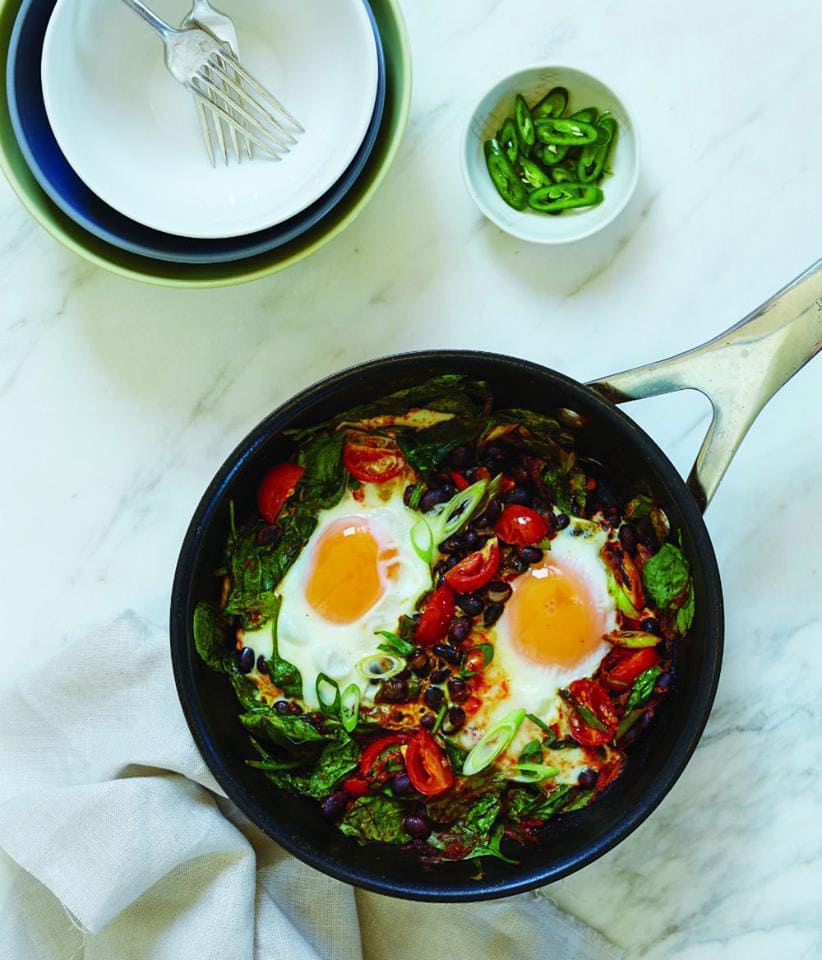Learn how to balance hormones with the power of nutrition from the Happy Hormone cookbook written by Emma and Jill!
You may have noticed that recently I have been trying to add a better variety of content here at The Fit Cookie. Since my personal knowledge is limited, I’ve been reaching out to other professionals (and some have reached out to me) to share guest posts, interviews, and health information that I have limited knowledge about.
I really enjoy this not only becasue it gives my readers a bit more variety so you don’t have to just listen to me, but it also helps me with saving me a bit of time on writing and creating new content. Win-win!

Since it has been quite a while since I’ve done an interview, I wanted to share this interview with Emma Ellice-Flint, co-author of The Happy Hormone Cookbook. We talk a bit about how nutrition and diet changes can affect hormone balance. Keep reading!
Balancing hormones with the power of nutrition
What are some of the most common problems with women’s hormones these days?
The most common problem I see in my Nutrition clinic with female hormone’s these days is an out-of-balance estrogen level, which throws the other female hormones off balance too! This might express itself in a woman’s body as any number of things – a weight problem, sleepless nights, anxiety, poor concentration, skin issues, premenstrual symptoms, fertility abnormalities.
In one of my clinics, which is within a Pilates training institute, often the women I see are fit and seemingly healthy, but despite this they still feel unbalanced, often stressed or anxious, perhaps not sleeping too well. Once they follow The Happy Hormone Cookbook recipes they really surprise themselves with their improvement!
What are some of the causes for hormone imbalances?
There could be many causes for this imbalance but what a person eats plays a big role in this such as a lack of fiber and vegetables in a person’s diet. Other factors contributing to this can be their environment such as the container a person heats their food in I.E. plastics can leach xeno-estrogens into the food.
Most people don’t eat with hormones in mind. What are some of the basic principles of eating to balance hormones?
Some of the basic principles of eating to balance hormones are having plenty of natural wholesome fiber in your foods such as from vegetables, legumes and pulses. This helps your liver do its job well, clearing out excess unwanted female hormones and detoxifying out metabolic ‘garbage’ from everyday living. Plus fiber also helps feed your gut’s microbiota helping to produce ‘happy hormone’ neurotransmitters.
Secondly eating nutritious oils such as those contained in nuts, seeds, avocados and seafood helps as an anti-inflammatory and nourishment for your body and it’s cell walls, helping them to do their job effectively in allowing nutrients in and out of our cells.
Ranch Eggs with Spinach from the Happy Hormone Cookbook
Which foods should we be avoiding for optimal hormone balance?
It’s not so much what foods to avoid, rather what foods to increase up – foods such as all the vibrant rainbow-colored vegetables, nuts, seeds, seafood, pulses, whole grains, and other liver friendly foods such as garlic, onions, cabbage and broccoli.
Can this dietary approach help to alleviate symptoms of things like PCOS, endometriosis, etc.?
In my Nutrition clinic I have followed The Happy Hormone Cookbook way of eating with clients, plus suggested some specific changes, and seen amazing improvements with PCOS and Endo. There are many examples, one is by incorporating ginger into what you eat.
Ginger is an anti-inflammatory and some studies show that by eating roughly 1 heaped teaspoon of fresh ginger (¼ teaspoon dried ginger) per day, in the week running up to your period, this can help reduce the pain and excess blood flow associated with menstruation.
Another example, is the fact that most of the recipes in The Happy Hormone Cookbook contain plenty of flavonoids. These are a group of phytonutrients that trigger antioxidant and anti-inflammatory effects. Women with PCOS can (as can everyone!) benefit from eating foods high in flavonoids since it helps with insulin resistance.
If there is a favorite recipe from the book you would like us to share, we can add that too!
My favorite recipe, and one I keep being asked to demonstrate at my cooking events is the Fig And Ginger Slice. It is sugar-free, packed full of nutritious nuts and seeds, plus it contains anti-inflammatory ginger, and lots of phytonutrients. And it tastes great too! I use it as a power-packed snack, and if I‘m making it for kids to take to school then I simply swap the nuts out for seeds.
Jill Keyte and Emma Ellice-Flint
Nutritionists and chefs Emma Ellice-Flint and Jill Keyte coauthored their new whole foods inspired book The Happy Hormone Cookbook. With a collection of healthy and delicious recipes, the exciting new book is breaking barriers by shifting the balance of food that we eat daily to contribute to the ever-changing human body of both women and men.
Before qualifying and working as a nutritionist, Emma worked as a chef in both London and Sydney. She currently practices at the prestigious Eatcetera Nutrition in Sydney, Australia. Jill has been interested in health and what makes humans healthy all of her adult life.
After a brush with early breast cancer, she decided to follow an eating plan that would keep her hormones happy naturally. Jill’s professional background is in arts and event management, and through her business, The Vital You, she runs a series of healthy cooking workshops and weekends for wellness with Emma in Sydney and in regional New South Wales.

Sarah Jane Parker is the founder, recipe creator, and photographer behind The Fit Cookie. She’s a food allergy mom and healthy living blogger based in Wyoming. Sarah is also an ACSM Certified Personal Trainer, ACE Certified Health Coach, Revolution Running certified running coach, and an ACE Certified Fitness Nutrition Specialist





Great article and yummy recipes by the looks of things! Great to see your approach to hormones as being factors such as lifestyle, stress, exercise along with the dietary recommendations!
Thanks Emily!